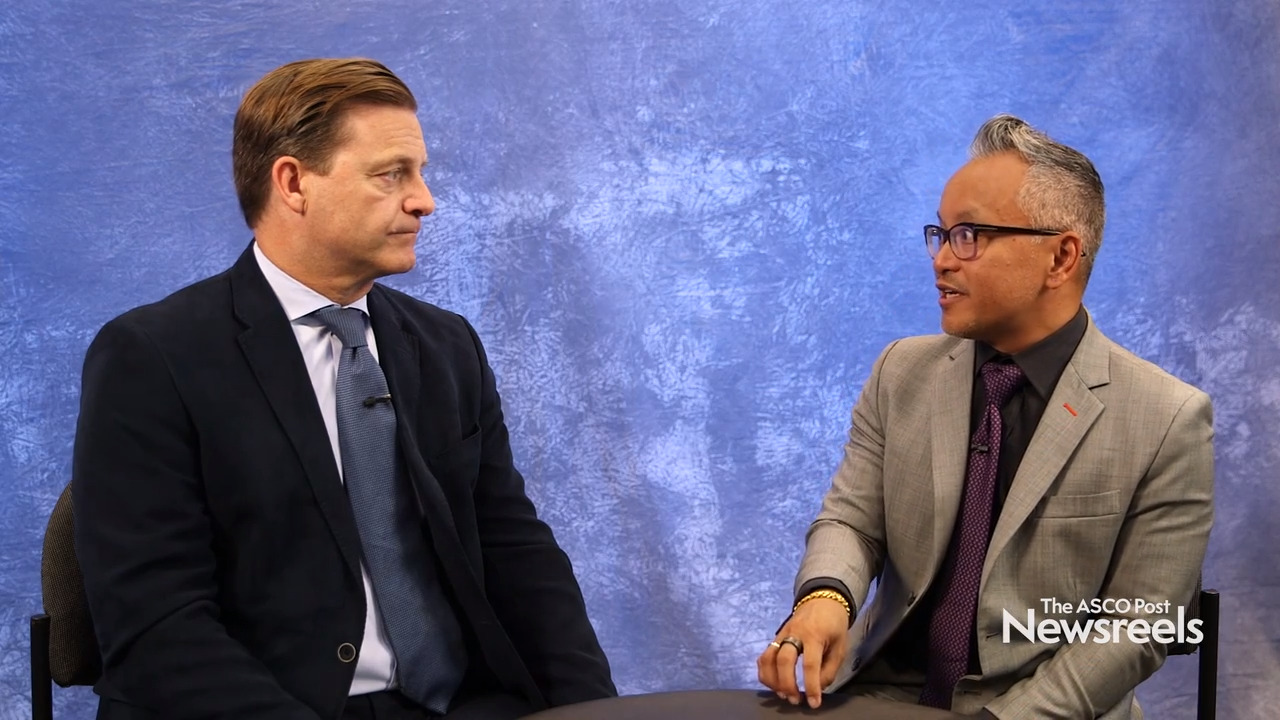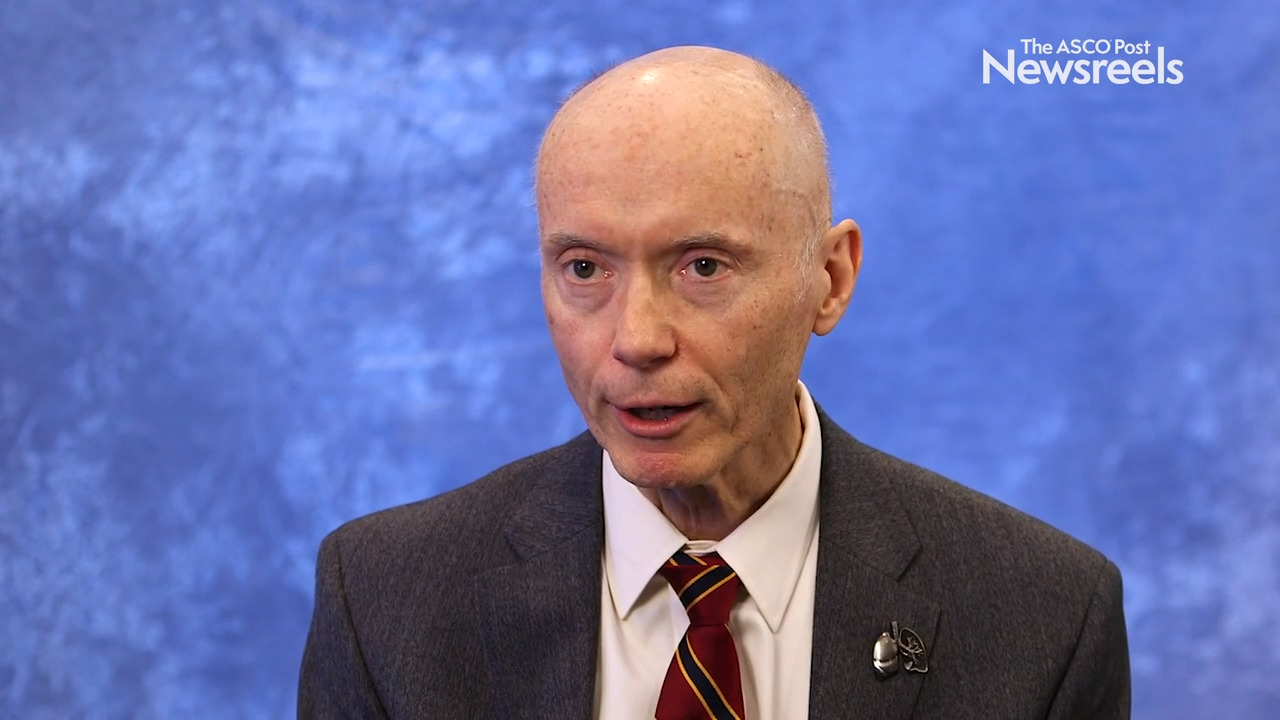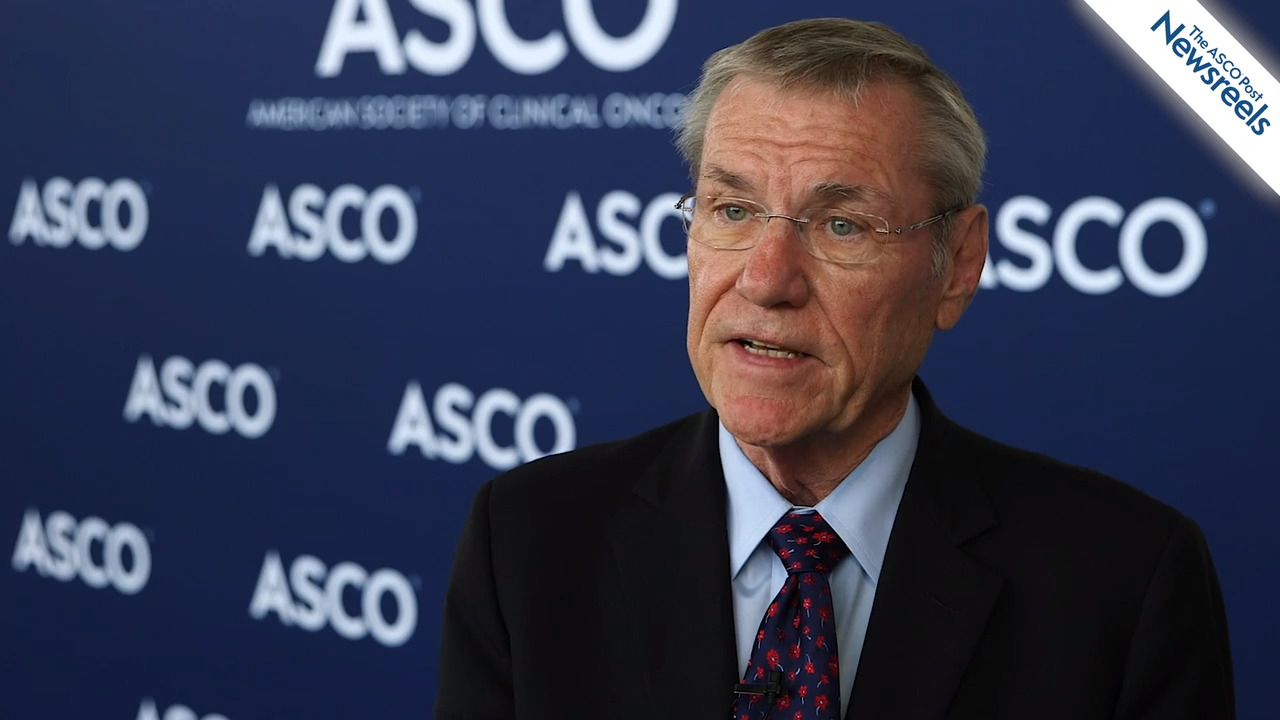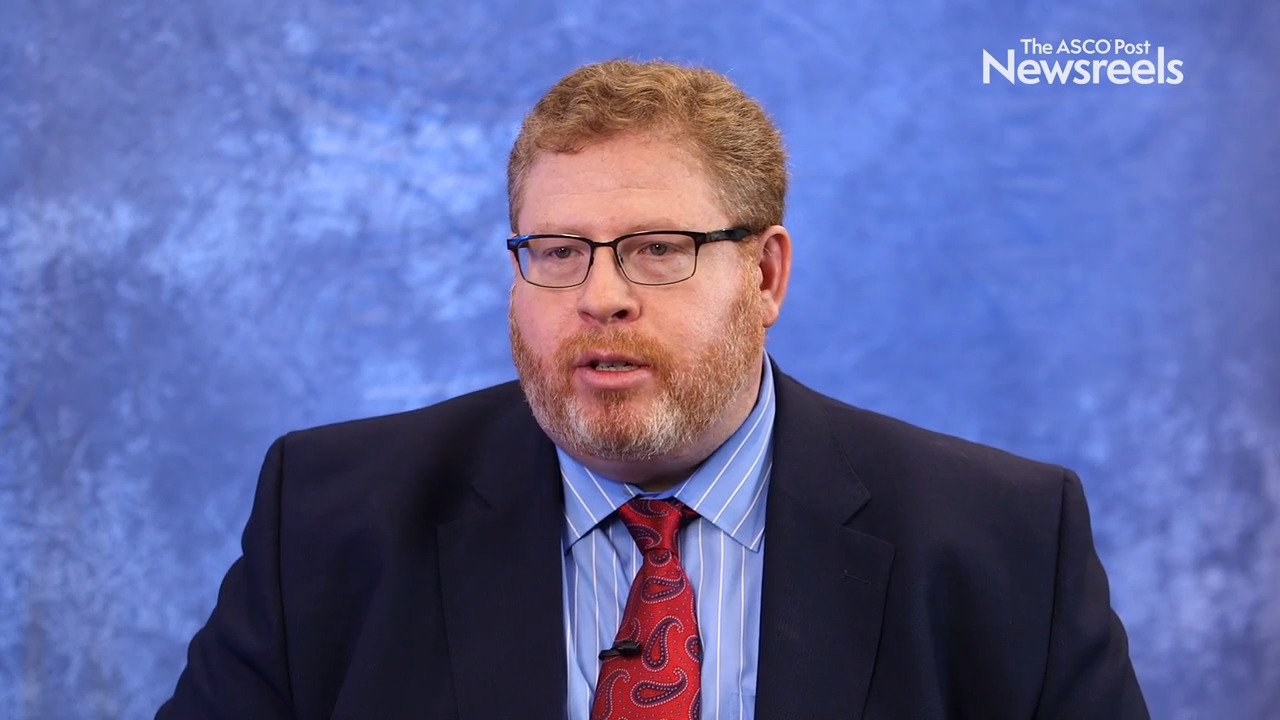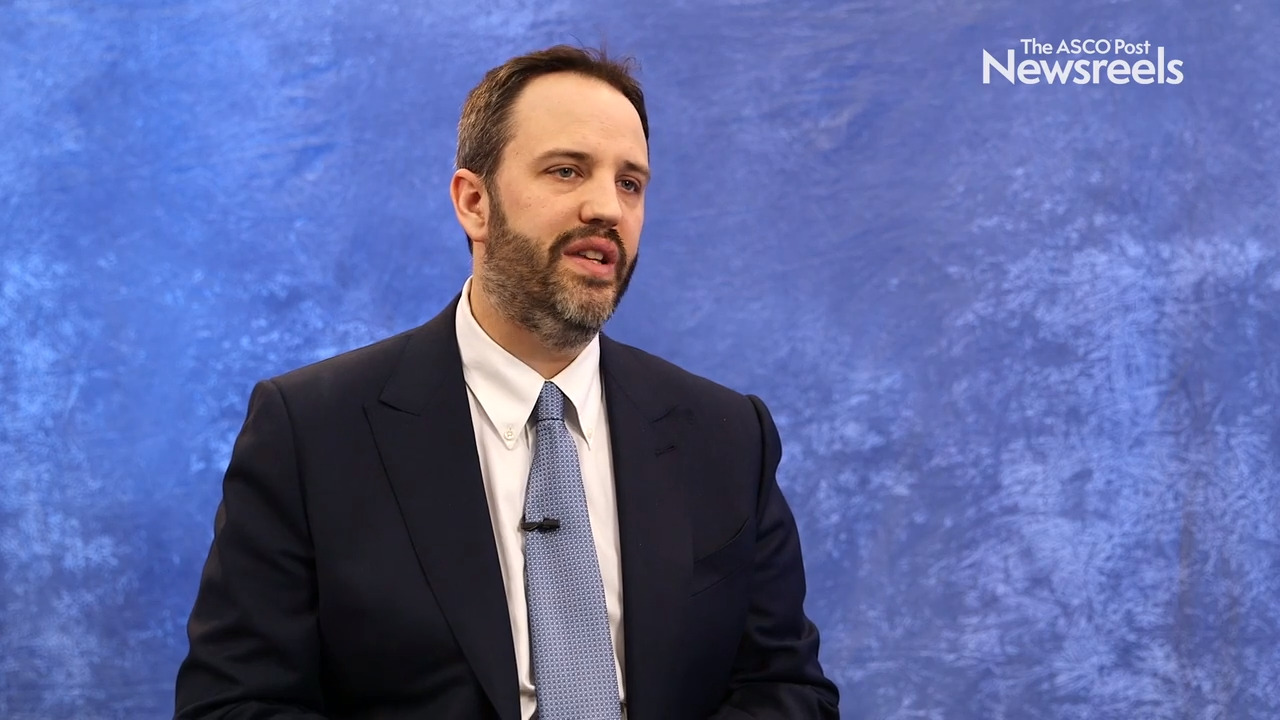Mansoor Raza Mirza, MD, and Don S. Dizon, MD, on Recurrent Platinum-Sensitive Ovarian Cancer: Niraparib Plus Bevacizumab
2019 ASCO Annual Meeting
Don S. Dizon, MD, of the Lifespan Cancer Institute, and Mansoor Raza Mirza, MD, of Copenhagen University Hospital, discuss study findings that showed, compared with niraparib alone, niraparib plus bevacizumab improved progression-free survival in women with recurrent platinum-sensitive ovarian cancer (Abstract 5505).
Don S. Dizon, MD, of the Lifespan Cancer Institute, and Matthew A. Powell, MD, of Washington University School of Medicine, discuss phase III findings on paclitaxel plus carboplatin vs paclitaxel plus ifosfamide in chemotherapy-naive patients with stages I to IV, persistent or recurrent carcinosarcoma of the uterus or ovaries (Abstract 5500).
David J. Kwiatkowski, MD, PhD, of Brigham and Women’s Hospital and Dana-Farber Cancer Institute, discusses an interim analysis and biomarker data from a multicenter study showing that 19% of patients with NSCLC had a major pathologic response to preoperative treatment with atezolizumab (Abstract 8503).
Rowan T. Chlebowski, MD, PhD, of the Los Angeles BioMedical Research Institute at Harbor-UCLA Medical Center, discusses study findings from nearly 2 decades of data, which showed a 21% reduction in deaths from breast cancer among postmenopausal women who adhered to a low-fat diet (Abstract 520).
Jonathan E. Rosenberg, MD, of Memorial Sloan Kettering Cancer Center, discusses results from the phase III Alliance trial, which showed that adding bevacizumab to gemcitabine and cisplatin did not improve overall survival in patients with metastatic urothelial carcinoma, but did improve progression-free survival (Abstract 4503).
Justin F. Gainor, MD, of Massachusetts General Hospital, discusses updated findings from the ARROW study in which BLU-667, a selective RET inhibitor, demonstrated clinical activity and tolerability in patients with advanced RET fusion–positive non–small cell lung cancer (Abstract 9008).
